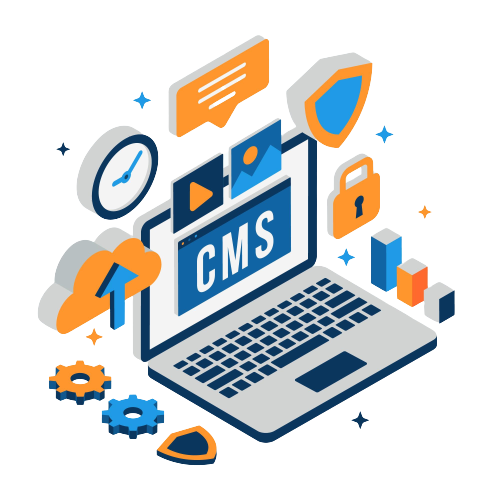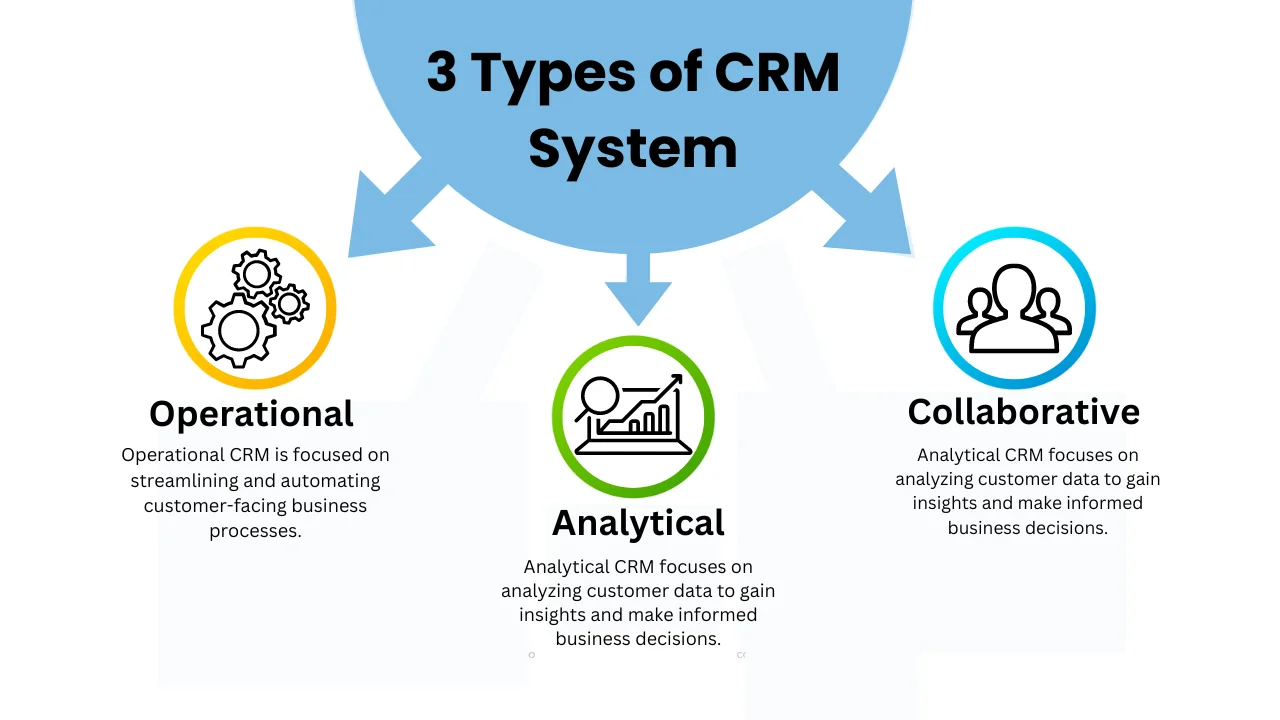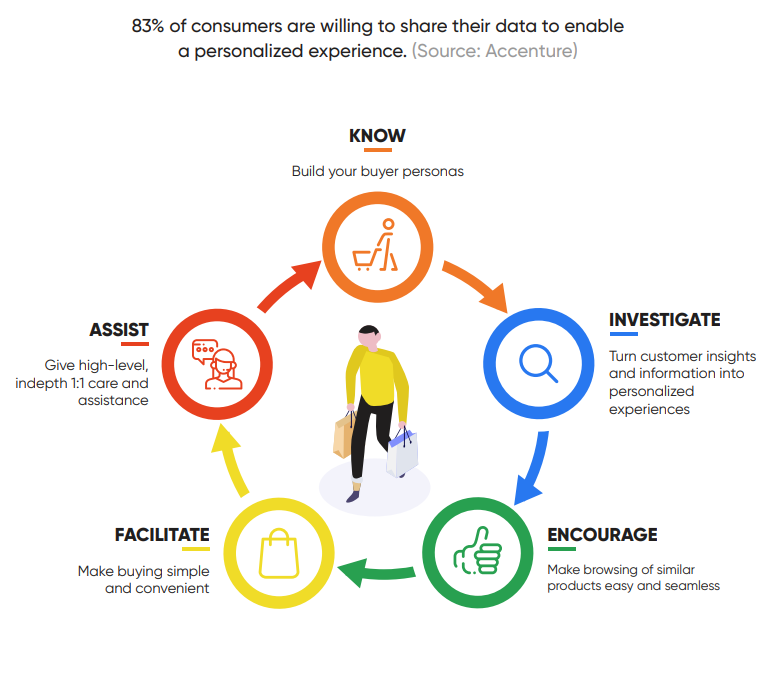Starting a business is an exciting journey, but scaling that business quickly can be challenging. One of the best ways for startups to accelerate their growth is by leveraging web solutions that streamline operations, enhance customer experiences, and boost efficiency. In this digital era, a strong online presence and the right technological tools are essential for startups looking to compete and scale.
In this blog post, we will explore some of the top web solutions that can help startups scale their business fast. From website development to digital marketing tools and project management systems, these solutions can give your startup the boost it needs to thrive in a competitive landscape.
1. Building a Scalable Website with a Custom CMS
A startup’s website is its digital storefront. A custom content management system (CMS) is crucial for managing and scaling your site as your business grows. Using an out-of-the-box CMS solution like WordPress is a great option for some businesses, but for startups with specific needs, a custom CMS can be more powerful and scalable. This allows your website to grow with you and adapt to the unique requirements of your startup.
Actionable Tip: When building a website, ensure that it is mobile-friendly, as a significant percentage of users browse from mobile devices. Also, ensure that your website integrates seamlessly with key business tools like CRMs, inventory management systems, and email marketing platforms.
Example: A tech startup that develops software products might require a custom CMS that allows them to easily showcase product updates, features, customer success stories, and demo videos. This flexibility ensures that the website can grow and change as the product evolves.
Image Suggestions:

2. Cloud Hosting Solutions for Scalability and Performance
As your startup grows, you will need a hosting solution that can handle increased traffic and provide reliable uptime. Cloud hosting is one of the best web solutions for scalability. It allows you to pay for only the resources you use, making it a cost-effective choice for startups.
Why Cloud Hosting?
- Scalability: Cloud hosting allows your website to grow with your startup. As your traffic increases, the hosting environment can expand to meet demand.
- Reliability: Cloud hosting ensures high uptime, which is critical for keeping your website accessible to customers around the clock.
- Security: Cloud hosting providers often offer advanced security features to protect your site from cyber threats.
Actionable Tip: Consider providers like Amazon Web Services (AWS) or Google Cloud Platform (GCP) for flexibility and scalability. Also, make sure to implement backups and content delivery networks (CDNs) to ensure performance remains consistent during traffic surges.

Example: An e-commerce startup that experiences fluctuating traffic due to seasonal product launches might use cloud hosting to ensure the website remains responsive and fast even during peak periods.
3. Customer Relationship Management (CRM) Systems
As your startup grows, managing customer relationships becomes increasingly important. A CRM system helps you keep track of interactions with potential and existing customers, automate follow-ups, and manage leads effectively. CRMs are essential tools for startups because they centralize customer data and improve team collaboration.
Why Use a CRM?
- Streamline Communication: With a CRM, you can manage customer inquiries, support tickets, and sales pipelines in one place.
- Automate Tasks: CRMs automate repetitive tasks like email follow-ups, scheduling meetings, and tracking customer interactions.
- Track Performance: You can monitor key performance indicators (KPIs), track sales progress, and identify areas for improvement.
Actionable Tip: Start by implementing a cloud-based CRM, such as HubSpot or Salesforce, that can scale with your business. Integrating your CRM with other tools like your website, email marketing system, and social media channels ensures a seamless flow of data.

Example: A startup offering digital marketing services might use a CRM to track lead generation, follow up with potential clients, and automate personalized email campaigns, saving valuable time and improving conversion rates.
4. E-commerce Platforms for Seamless Online Sales
For startups with a product to sell, an e-commerce platform is a must-have solution. These platforms enable startups to sell products online efficiently, integrate payment gateways, track inventory, and handle customer orders. Platforms like Shopify, WooCommerce, and BigCommerce offer scalable solutions for businesses of all sizes.
Why Choose E-commerce Platforms?
- Ease of Use: E-commerce platforms are user-friendly and allow businesses to quickly set up an online store without needing extensive technical knowledge.
- Integration: Most platforms integrate with other business systems, including CRMs, inventory management tools, and email marketing platforms.
- Customization: Customizable themes and plugins allow startups to personalize the store according to their brand and business needs.
Actionable Tip: Choose an e-commerce platform that aligns with your business needs. For example, if you need more flexibility and control over your store’s design and functionality, WooCommerce (for WordPress) might be the best option. For a more streamlined and user-friendly experience, Shopify is a great choice.

Example: A fashion startup can easily set up an online store on Shopify, integrate it with Instagram for social selling, and automate the email marketing process for abandoned cart recovery and promotions.
5. Digital Marketing Tools for Customer Acquisition
No startup can scale without acquiring customers. Digital marketing tools help startups drive traffic to their websites, convert visitors into customers, and nurture long-term relationships with their audience. Some essential digital marketing tools include email marketing platforms, social media schedulers, SEO tools, and PPC advertising platforms.
Why Digital Marketing Tools?
- Reach a Wider Audience: With the right digital marketing tools, startups can target specific customer segments, expand their reach, and increase brand awareness.
- Measure ROI: Digital marketing tools allow you to track the success of your campaigns and optimize for better results.
- Automate Campaigns: Marketing automation tools save time by scheduling posts, sending follow-up emails, and generating reports.
Actionable Tip: Begin with tools that offer automation and segmentation. Platforms like MailChimp for email campaigns, Hootsuite for social media scheduling, and Google Ads for pay-per-click advertising are great places to start.

Example: A startup selling online courses could use Google Ads to drive traffic to their website, MailChimp for automated email marketing, and Hootsuite to manage social media campaigns.
6. Project Management and Collaboration Tools
Effective project management is essential for startups to keep track of tasks, deadlines, and team collaborations. Tools like Trello, Asana, and Monday.com provide a central hub where teams can assign tasks, track progress, and collaborate on projects. These tools are especially useful for remote teams or businesses scaling quickly with multiple moving parts.
Why Use Project Management Tools?
- Organize Workflows: Track tasks, set deadlines, and manage priorities across teams.
- Collaboration: Foster communication and collaboration among team members, whether they’re working in-house or remotely.
- Monitor Progress: Ensure that projects stay on track and milestones are achieved on time.
Actionable Tip: Implement a project management tool early on to help streamline workflows and keep teams aligned. Integrating these tools with communication platforms like Slack and cloud storage services like Google Drive further enhances collaboration.

Conclusion
As a startup, using the right web solutions can be the key to scaling your business quickly and efficiently. From building a custom website with a CMS to leveraging CRM systems, e-commerce platforms, and digital marketing tools, the solutions we’ve discussed in this article are essential for fast growth. By implementing these tools strategically, you can streamline operations, enhance customer experience, and stay ahead of the competition
